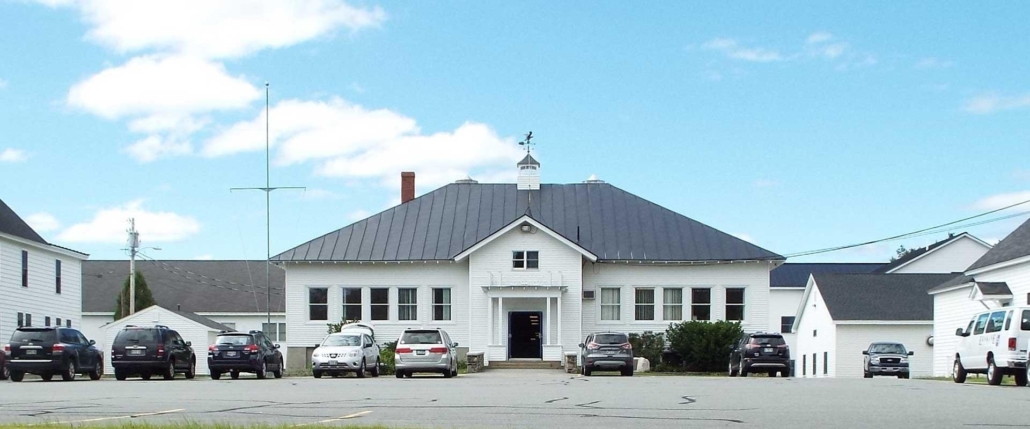China planners postpone request for solar permit extension
 by Mary Grow
by Mary Grow
China Planning Board members postponed a request for a permit extension for SunRaise Investments’ planned Route 3 solar project to their May 11 meeting, before continuing their April 27 discussion of the proposed Solar Energy Systems Ordinance that will regulate such applications in the future.
Almost a year ago, at their May 19, 2020, meeting, planners unanimously approved the proposed solar farm on land leased from Daniel Ouellette on the south site of Route 3, west of the Dirigo Road intersection.
SunRaise Vice-President for Construction Kevin Corbett explained that construction work has not started because the company needs to complete arrangements with Central Maine Power Company. He feared the permit would expire before work started.
China’s Land Use Ordinance says permits expire a year from the date of issuance unless a “substantial start” on construction has been made. Once the “substantial start” is made, the permittee has 18 months to finish the project before the permit expires.
Corbett sees construction starting in late 2021 or early 2022. SunRaise still needs to finish plans and acquire equipment, he said.
Planning board members discussed whether work done already, like initiating discussions with CMP, counted as a start. Chairman Randall Downer postponed action in order to provide time for notice to neighboring landowners. The renewal request should be on the May 11 planning board agenda.
Corbett offered suggestions on China’s draft Solar Energy Systems Ordinance, including some identified as inserted by Portland law firm, Verrill Dana. Verrill Dana attorney, Scott Anderson, attended the virtual planning board meeting. Board members were surprised to learn that Verrill Dana had had access to the document they have edited on-line using SharePoint.
A major change would have exempted solar panels from the definition of “structure” in the China ordinance. Anderson and Corbett supported the change because the ordinance now says that in the rural area, “structures of all types shall not cover more than 20 percent of any lot.”
Corbett pointed out, and board members agreed, that solar panels, which allow water to drip onto the ground among them, are not the same as a building roof that concentrates run-off. However, Board member James Wilkens asked, would the change mean solar panels could cover 100 percent of a lot?
“That’s not what I want,” he said.
Downer said that in past reviews, China planners had defined solar panels as structures. Board members voted unanimously to delete the proposed amendment.
They also deleted a second amendment Verrill Dana suggested referencing state law. They intend to incorporate references from other parts of the China Land Use Ordinance.
At Downer’s suggestion, he and board member Toni Wall (appointed in absentia) will smooth out the draft ordinance before the May 11 meeting. Wilkens volunteered to help if Wall declines.
Board members currently plan to hold their May 11 meeting in person, at 6:30 p.m. in the former portable classroom behind the China town office. The meeting room can accommodate 17 people within Covid-19 restrictions, Downer said.
Responsible journalism is hard work!
It is also expensive!
If you enjoy reading The Town Line and the good news we bring you each week, would you consider a donation to help us continue the work we’re doing?
The Town Line is a 501(c)(3) nonprofit private foundation, and all donations are tax deductible under the Internal Revenue Service code.
To help, please visit our online donation page or mail a check payable to The Town Line, PO Box 89, South China, ME 04358. Your contribution is appreciated!





Leave a Reply
Want to join the discussion?Feel free to contribute!